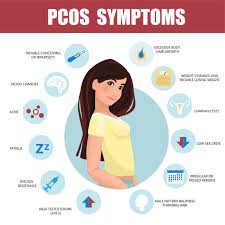
Polycystic ovary syndrome (PCOS) is a common hormonal disorder that affects people with ovaries, particularly during their reproductive years. PCOS can lead to a variety of symptoms and health concerns.
PCOS can manifest in different ways, and not all individuals with PCOS will experience the same symptoms. Common symptoms include:
The exact cause of PCOS is not fully understood, but it is believed to involve a combination of genetic, hormonal, and environmental factors. Key factors include:
Diagnosing PCOS involves a combination of medical history, physical examination, and laboratory tests. Common diagnostic criteria include:
Other conditions that can mimic PCOS symptoms, such as thyroid disorders or hyperprolactinemia, should be ruled out through appropriate tests.
Treatment for PCOS aims to manage symptoms, reduce the risk of complications, and improve overall health. The specific approach may vary based on individual needs and goals. Common treatment options include:
It’s important for individuals with PCOS to work closely with healthcare providers to develop a personalized treatment plan that addresses their unique needs and concerns. Regular check-ups and monitoring of symptoms are essential to managing PCOS effectively and preventing long-term health complications such as diabetes and heart disease.
WhatsApp us